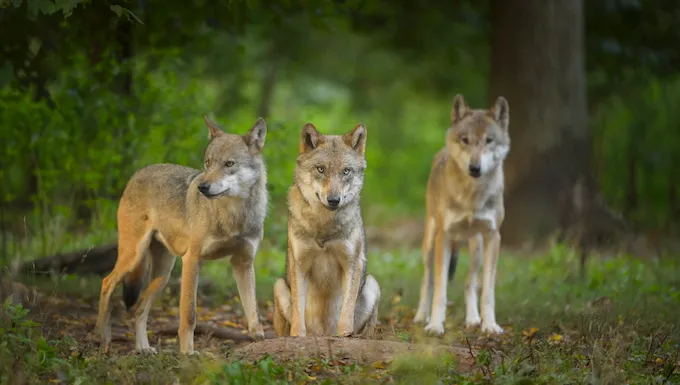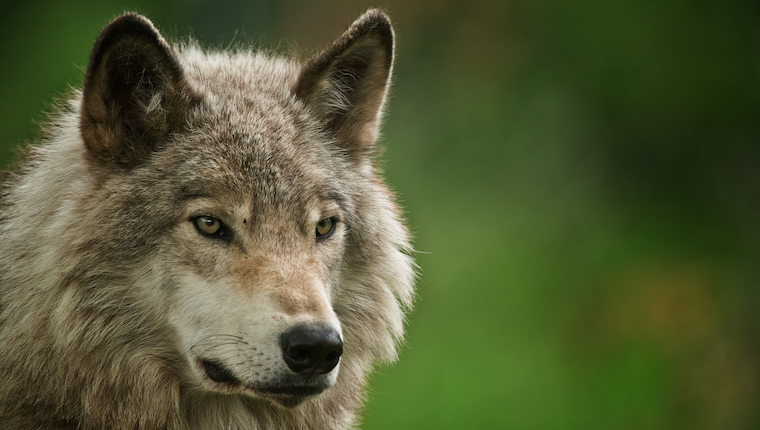
Few bonds are stronger than that of people and dogs. But until recently, scientists assumed dogs’ wild relative, the wolf, wasn’t so keen on humankind. A new report from Stockholm University in Sweden suggests that’s incorrect. Domesticated wolves bond with humans, expressing affection and attachment like their domesticated counterparts.
Observing Behaviors in Dogs and Wolf Puppies
Dogs often form emotionally dependent bonds with their humans. Previously, researchers assumed canines developed the ability to form such attachments after they’d been domesticated. In the study, published in the peer-reviewed journal “Ecology and Evolution,” lead study author Christina Hansen Wheat and her team put the theory to the test.
The researchers hand-raised raised 12 dog and 10 wolf puppies from 10 days old under identical, standardized conditions. Over several months, they conducted a series of behavioral tests. One of the tests, the Strange Situation test, involves a stranger and a familiar person taking turns entering and exiting the room. The unstable situation is meant to stimulate the animals’ attachment behaviors.
The scientists found both dogs and wolves behaved differently with the stranger and familiar person. This proved the ability to form an emotional bond with a familiar person isn’t unique to dogs. The wolves also showed higher stress levels around the stranger. When the familiar person returned, their stress decreased. On the other hand, the dogs were mostly unaffected by the stranger’s presence.
What This Says About Dog Evolution
The findings suggest the ability to form bonds is inherent in Canidaes — the family of dog-like carnivores, and not just domestic dogs or wolf puppies. Wheat and her colleagues think early dog domesticators might have selectively bred this trait, creating today’s affectionate, loyal canines.
“Together, the collective evidence from these wolf studies strongly suggests that this behavioral phenotype exists as standing variation in ancestral populations of the domestic dog; hence the narrative that the ability to express attachment behavior toward humans is exclusive to dogs is no longer tenable,” Wheat wrote.









